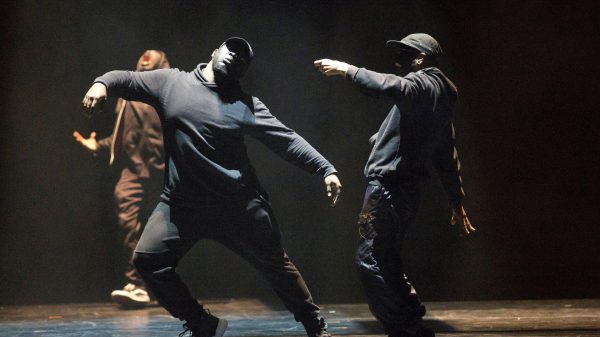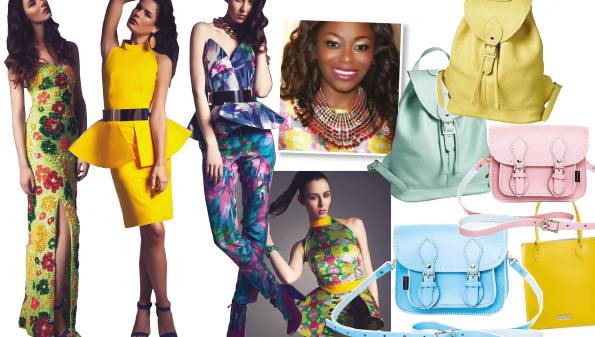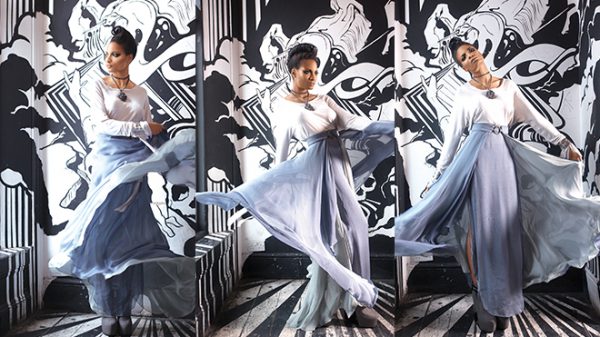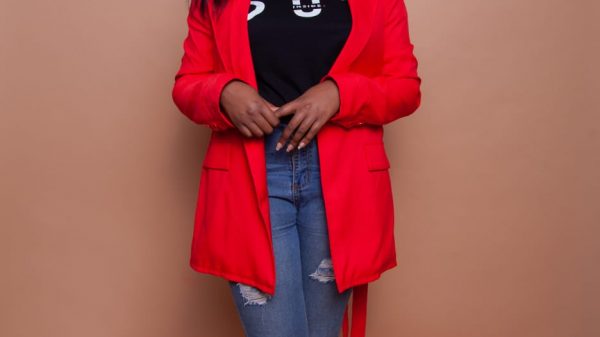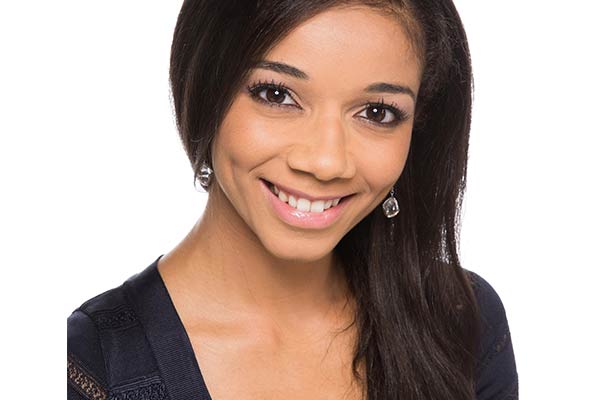Me and My Career with Celine Gittens
Originally hailing from Trinidad, and raised in Canada, it’s in Britain that Celine has been raising the barre. In ten years of dancing with the Birmingham Royal Ballet Celine has won numerous awards, and become the first black ballerina to dance the dual roles of Odette and Odile in Swan Lake…
My earliest memory of ballet would probably be watching my mum teach her dance school in Trinidad. I grew up with dance and it was always around me; classical music was always around me, art and that culture was always present. I was probably about three years old or even two and a half and I was watching my mum teach, and I think I was still sitting in the stroller. She was correcting the kids and subconsciously I did the correction that she wanted, I think it was ‘point your toes harder’ or something like that and both my feet went pointing harder.
My mum she also taught at an elementary school and taught dance there so it was really good for the kids in the elementary school who were not trained in dance or ballet but she brought that to them and a lot of those kids actually went on to her ballet school when she opened it because of interest and I think it’s just really access which sparked the interest in them.
My mum is originally from Turkey, she trained with the Royal Academy of Dance training technique, which is based in London. And then she went on to teach from there. She had quite a lot of knowledge of British companies, [but] I didn’t really choose to come here actually, it all kind of happened when I did the Gene International ballet Competition, which was based in London in 2005 and from there I was invited to come back and audition for Royal Ballet School, the following year. When I was here I auditioned for Birmingham Royal Ballet because we had family friends that lived in Birmingham so we came up for the weekend. I didn’t really choose anywhere, it kind of happened organically.
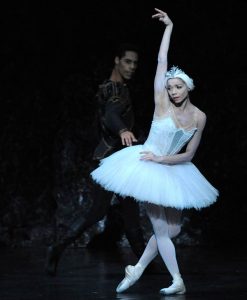 I’ve always been given quite a lot of opportunity from our director David Brentweed. So ever since I’ve been in the company actually my first big role was Arabian in Nutcracker and I did that my first couple of months in the company and I’m still doing that now, for a new comer that’s quite a big thing. And then after two years I was understudying Odette/Odelle in Swan Lake, so it sort of progressed quite smoothly and I’ve been really happy with this company, it’s really great.
I’ve always been given quite a lot of opportunity from our director David Brentweed. So ever since I’ve been in the company actually my first big role was Arabian in Nutcracker and I did that my first couple of months in the company and I’m still doing that now, for a new comer that’s quite a big thing. And then after two years I was understudying Odette/Odelle in Swan Lake, so it sort of progressed quite smoothly and I’ve been really happy with this company, it’s really great.
I probably decided to become a ballet dancer when I was 14/15 and I went into the higher grades of the Royal Academy of Dance syllabus. I did my dance exams and when I went to the more advanced ones that’s when I started thinking about making this a career and setting the goals to complete Royal academy of dance exams with Silver Seal and then the next step was to do the Gene competition. I think from there that’s when I had decided that this was going to be a serious thing.
I loved studying so that would have been my other aspiration. And writing, when I was in high school I did win a couple of awards for writing competitions. So that was my other aspiration which I followed when I came into the [Birmingham Royal Ballet] company. After a couple of years I picked up a Master of Philosophy Degree with the University of Birmingham and completed that in 2012. That’s a passion of mine, studying and learning. We had a joint programme with Birmingham Royal Ballet and the university, for whoever wanted to further their education. It’s so hard for ballet dancers to do and it’s kind of side tracked because of the careers going so quickly, at such a young age as well. They used to offer this programme, unfortunately they don’t do that anymore, I think our group was the last.
The hardest thing about being a ballerina I think is to maintain that sort of self-drive and self-commitment to the job. You’re in a big company; it’s different from being a ballet student where there are teachers always pushing you and trying to make you do better in the most encouraging way. That changes when you come into a ballet company because you’re not being looked after in that way, you’re a professional now and you’re supposed to be an elite performer so you have that responsibility on your side of keeping on top of your practising out of hours and your own research and into whatever ballet you’re going to do (so that your acting ability and the way you are portraying the roles are exactly correct). We do get coached and we have really great teachers here who are past principles as well, and that’s amazing but it takes more than that to really be the best at your job.
We are contracted to work 10.30-6.30 every day and they’re quite strict to it. We arrive maybe 45 minutes before to stretch and then have warm ups and rehearsals.Evening is just putting feet up on the sofa you know, relaxing and having a good nutritious dinner something to replenish your body and depending on how strenuous your day looks the next day that’s how you would probably base your food intake and what you eat to fuel your next day, just relaxing really. To be honest [in our down time] most of us don’t actually do anything because it’s the only time of rest and really deep recovery for our bodies because it can, take its toll on our bodies, sort of overuse, injuries or anything like that can really take it’s toll.
[Dancing the lead role in Swan Lake] was a really special occasion not only for being the first black ballerina to do that role but obviously it was my debut in that role and that sort of like a lifelong dream and every ballerinas dream is to do Odette Odile in Swan Lake, so it was a very exciting time, I think that sort of historical factor of it being the first black ballerina in the UK to do that, it was really quite special, it’s really quite something, it really was just a really magical time actually.
I’m really interested in teaching; I think that’s probably ingrained from my mum and I think it’s the best thing to do really if you have that passion to pass on knowledge, to pass on what you’ve gained over your career. If it comes to you naturally I think it’s a great thing to give to the younger students and those who are wanting to really push for a professional career, so I think I’ll be really interested in teaching [once I retire].
I’ve been asked [about getting more people of colour into ballet] quite often and I think my response is obviously the access, the access not only in communities but in schools more importantly. So for academic schools to provide that sort of aspect of dance I know they probably do physical education, you know basketball or football or whatever but I think dance is something that should also be in there it doesn’t have to be classical ballet it can be you know, bring someone in to teach Hip-hop [dance] because everyone wants to do Hip-hop! And maybe a bit of jazz it doesn’t have to be classical ballet it can be a bit of everything but I think the access to dance in academic schools is important because then it becomes more accepted and kids become more cultured and then they go home and they talk to their parents and say I really enjoyed the dance class we had today and you know that’s how the interest grows. If they start in the schools, it starts to become more accepted in their communities.
I think [a ballet career] can start later definitely, I’ve just recently heard of this girl who is a student with us and apparently she only started dancing three years ago and now she’s a student with us so I think really if there’s a passion for it you will make it happen so it doesn’t matter what age you are.
It’s obviously quite a physical sport or art form. I think whatever body type you have if you work hard enough, and if you do the right training technique it will lengthen the muscles and you know, that’s why ballet dances look the way they do, because we do that sort of training every day and it really does change the makeup of your body, we didn’t just walk [in] from the street like this. I really don’t think it matters about the body type to be honest.






